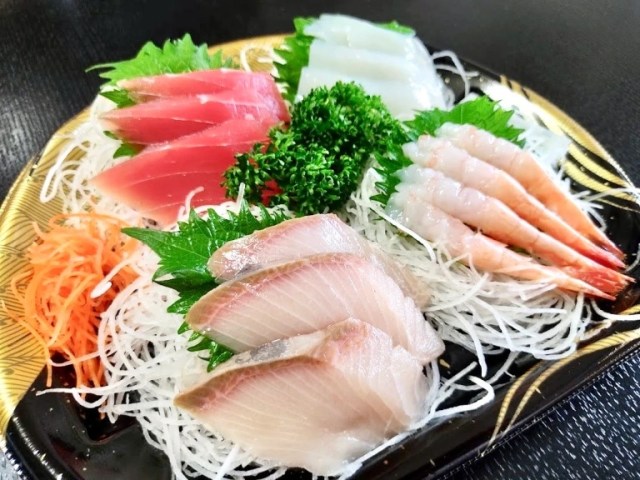
Taste-testing the effects of Pichit sheets.
You can find sashimi for sale at every supermarket in Japan, and the quality is usually pretty good. Not necessarily great, but good.
Great sashimi was exactly what our Japanese-language reporter Miho Kozuki was craving. Luckily, she had a secret weapon: Pichit.
OK, so maybe it’s not really a secret weapon, since the specially treated plastic wrap has been getting a lot of attention on social media recently. But the rumors of Pichit’s flavor-boosting powers had Miho feeling like she had a strong ally on her side as she pulled out a sheet.
According to its packaging, Pichit is supposed to condense the sashimi’s flavor and umami notes, while simultaneously eliminating any odors. It does this in two ways. First, the sheet draws moisture excess moisture out of whatever you’ve wrapped up in it. As we learned talking to a sashimi expert with decades of experience in the restaurant industry, if you have too much water, or worse, ice crystals, in a cut of fish, it’ll dilute the flavor and overly stiffen the texture. Second, Pichit is treated with starch syrup and seaweed extract, simulating the effects of kombujime, a method of preparing sashimi by sandwiching it between kelp leaves.
Using the sheet is a snap. First, Miho patted and wiped down some of her supermarket-bought sashimi with a paper towel.
Then she laid them out on the sheet…
…and folded the sheet over them. The Pichit sheet started drawing out moisture right away, forming a seal around the sashimi pieces as it did so.
Now Miho put the sashimi in her refrigerator while the sheet did its thing, and when she took it back out two and half hours later, it had been transformed!
For the sake of a taste-test comparison, Miho had put half of her sashimi into a Pichit sheet, and left the other half un-Pichit-ified, and they were now looking very different from each other.
▼ Left: Pichit sashimi
Right: Non-Pichit sashimi
▼ Pichit
▼ Non-Pichit
Since the package had said the sheets eliminate odors, Miho performed a sniff test first, but she didn’t really notice a difference between the two. Maybe that was because her sashimi was still pretty fresh from the market, and it didn’t really have any smell to it to begin with at this point.
But the flavor? There Miho noticed a big difference, and the Pichit-treated sashimi was far and away the better tasting. Again, that’s not to say the no-treated pieces were bad, but the ones that had spent time wrapped in the sheet were a lot more flavorful and didn’t have even a hint of sogginess to water down the taste. “It feels like they have twice as much umami as the regular pieces.” Miho says.
Prices for Pichit vary by store/seller, but Amazon has 32-sheet rolls for 2,048 yen (US$15.30). The only thing to be careful of is that because it removes moisture, Pichit isn’t such a good match for more succulent, extra-fatty types of sashimi, like otoro (extra-fatty tuna). But for things like maguro (regular tuna) or yellowtail, Miho thinks this is an affordable luxury upgrade that’s well worth it
Photos © SoraNews24
● Want to hear about SoraNews24’s latest articles as soon as they’re published? Follow us on Facebook and Twitter!
[ Read in Japanese ]